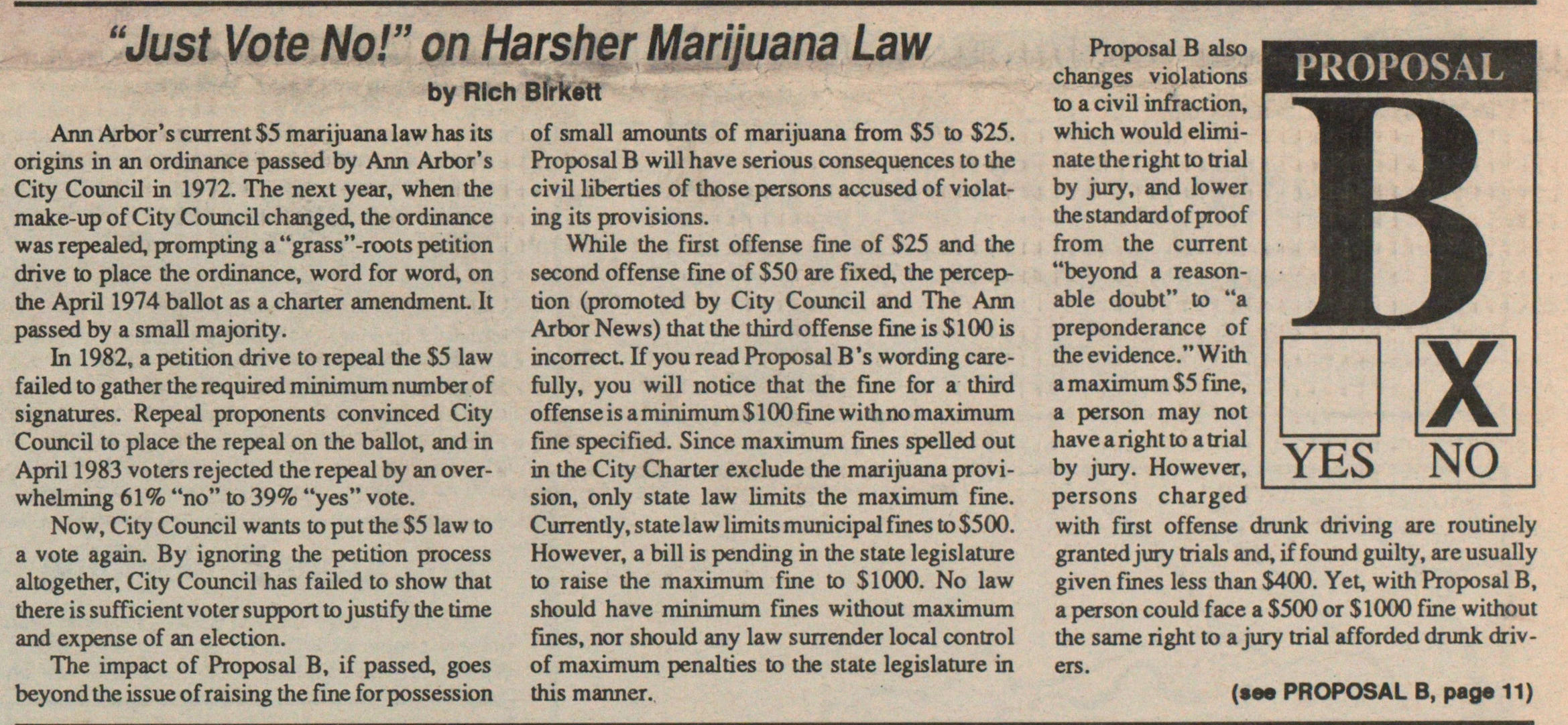"Just Vote No!" On Harsher Marijuana Law

Ann Arbor's current $5 marijuana law has its origins in an ordinance passed by Ann Arbor's City Council in 1972. The next year, when the make-up of City Council changed, the ordinance was repealed, prompting a "grass"-roots petition drive to place the ordinance, word for word, on the April 1974 ballot as a charter amendment. It passed by a small majority.
In 1982, a petition drive to repeal the $5 law failed to gather the required minimum number of signatures. Repeal proponents convinced City Council to place the repeal on the ballot, and in April 1983 voters rejected the repeal by an overwhelming 61% "no" to 39% "yes" vote.
Now, City Council wants to put the $5 law to a vote again. By ignoring the petition process altogether, City Council has failed to show that there is sufficient voter support to justify the time and expense of an election.
The impact of Proposal B, if passed, goes beyond the issue of raising the fine for possession of small amounts of marijuana from $5 to $25. Proposal B will have serious consequences to the civil liberties of those persons accused of violating its provisions.
While the first offense fine of $25 and the second offense fine of $50 are fixed, the perception (promoted by City Council and The Ann Arbor News) that the third offense fine is $100 is incorrect. If you read Proposal B's wording carefully, you will notice that the fine for a third offense is a minimum $100 fine with no maximum fine specified. Since maximum fines spelled out in the City Charter exclude the marijuana provision, only state law limits the maximum fine. Currently, state law limits municipal fines to $500. However, a bill is pending in the state legislature to raise the maximum fine to $1000. No law should have minimum fines without maximum fines, nor should any law surrender local control of maximum penalties to the state legislature in this manner.
Proposal B also changes violations to a civil infraction, which would eliminate the right to trial by jury, and lower the standard of proof from the current "beyond a reasonable doubt" to "a preponderance of the evidence." With a maximum $5 fine, a person may not have a right to a trial by jury. However, persons charged with first offense drunk driving are routinely granted jury trials and, if found guilty, are usually given fines less than $400. Yet, with Proposal B, a person could face a $500 or $ 1000 fine without the same right to a jury trial afforded drunk drivers.
(see PROPOSAL B, page 11)
Article
Subjects
Rich Birkett
Ann Arbor City Council
Ann Arbor News
Old News
Agenda